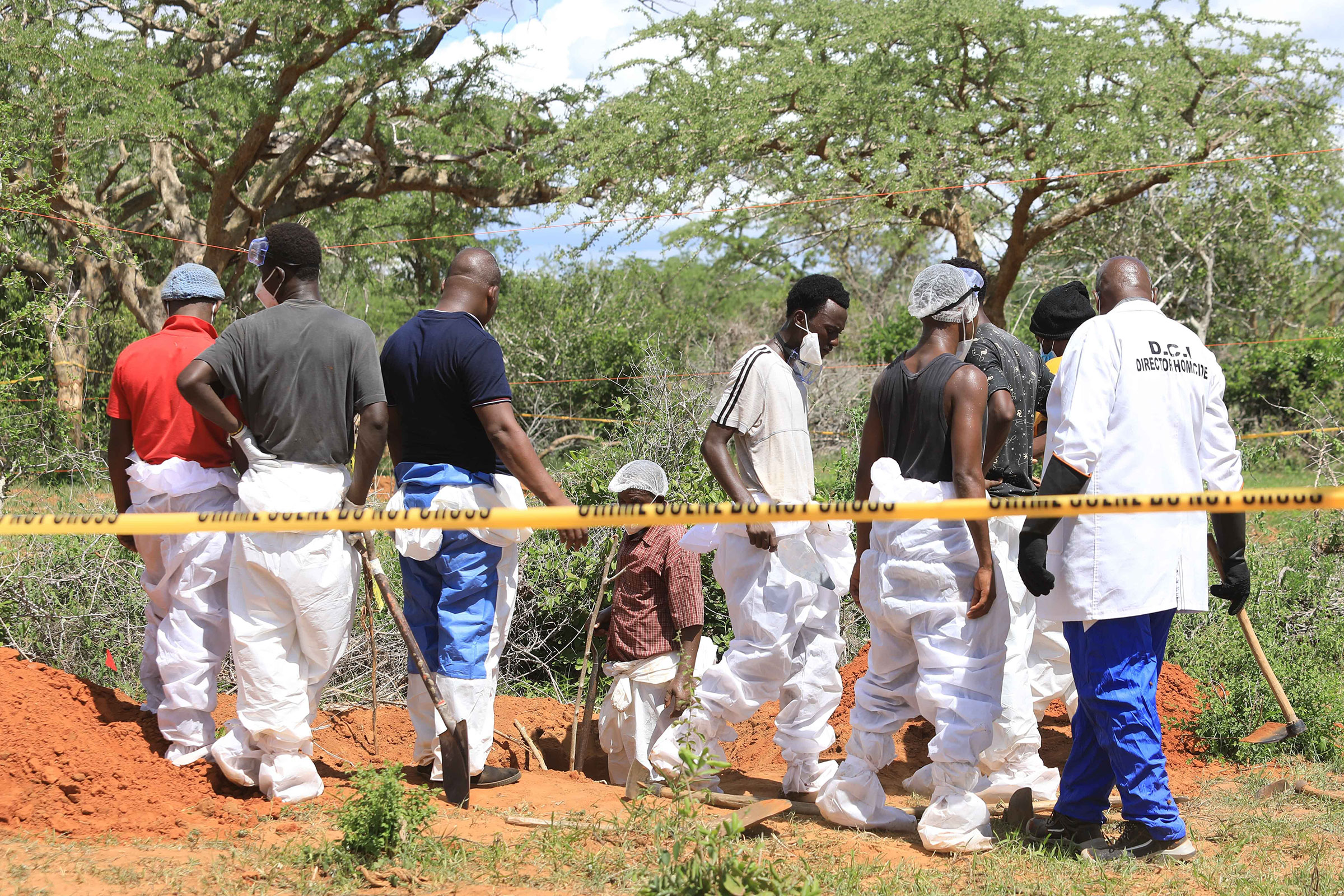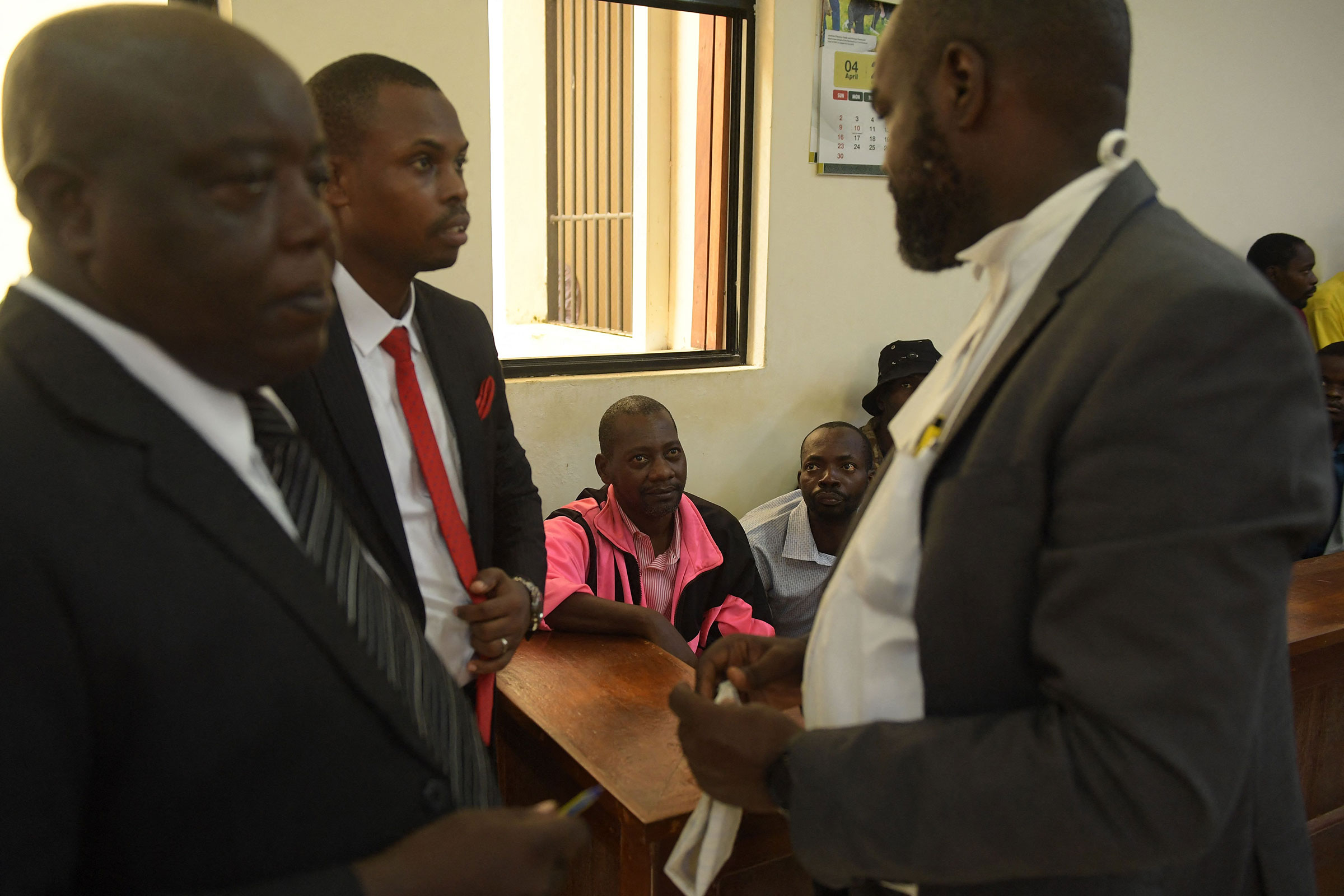
The death toll linked to a Kenyan cult leader accused of ordering his followers to starve themselves to “meet Jesus” has reached at least 318 people as of this week, after investigators exhumed more bodies from mass graves in Shakahola Forest in the southeast of the country. Investigators last week had expanded their search to a wider area in the region.
About 65 rescued followers of Paul Nthenge Mackenzie, who founded the Good News international church, were charged on Monday with attempted suicide after they refused to eat while in custody at a rescue center. These emaciated survivors appeared in court on Thursday, in the latest twist in one of the worst cult-related tragedies in recent history.
At least 613 people remain missing in connection to the cult, local officials said, while 95 people have been rescued.
Who is Paul Nthenge Mackenzie?
Mackenzie was a taxi driver before he founded Good News international church, set up his congregation, and promoted the Shakahola Forest as a refuge. Authorities accuse him of ordering his followers to starve so they could go to heaven before his predicted end of the world date. Government pathologists have said that some victims died of asphyxiation and strangulation. Mackenzie, along with over three dozen others, are being held in police custody under charges including murder and terrorism.
The evangelical pastor had a history of breaking the law, according to local news reports. From 1997 to 2003, he was arrested four times though acquitted due to lack of evidence. In one incident, Mackenzie was arrested after urging children not to attend school, saying that education was not encouraged by the Bible. He also had a YouTube channel where he encouraged his followers to reject modern aspects of life, like wearing wigs or using digital payment services. He was also arrested twice in both 2019 and March 2023, where he was suspected in the deaths of children, but released on bond.
A member of the public tipped off local police about the pastor’s starvation practices in April. Mackenzie handed himself over to police that month, where he has remained in custody since.

The Kenyan government has said it intends to convert Shakahola Forest into a memorial site to honor those who passed away in Mackenzie’s cult.
“This is not a place that can be reverted to farming, ranching, and other human activities because the souls of our brothers and sisters, adults, and children that we’ve lost here require much more dignity than that,” said Cabinet Secretary of Interior and Administration Kithure Kindiki in a public statement.
But critics have also blasted the Kenyan government’s response to the tragedy, including the decision to prosecute survivors for attempted suicide.
“Charging the survivors with attempted suicide is inappropriate and will retraumatize the survivors at a time when they most desperately require empathy, intense psycho-social assistance, rehabilitation, and community support,” Roseline Odede, chairperson of the Kenya National Commission on Human Rights, told a prominent Kenyan newspaper.
The fear of criminal charges is believed to have led some survivors to retreat into hiding in the forest, according to KNCHR’s press release. Kenya’s legal system classifies suicide as a misdemeanor, and is punishable by up to two years in prison.
More Must-Reads from TIME
- Cybersecurity Experts Are Sounding the Alarm on DOGE
- Meet the 2025 Women of the Year
- The Harsh Truth About Disability Inclusion
- Why Do More Young Adults Have Cancer?
- Colman Domingo Leads With Radical Love
- How to Get Better at Doing Things Alone
- Michelle Zauner Stares Down the Darkness
Contact us at letters@time.com